Good bacteria
Your gut microbiota are often referred to as “good bacteria” because many of them do jobs that keep us healthy. Here you can learn about many of these microbes and the important roles that they play as well as some of the “bad” bacteria that can make you ill.
Bifidobacterium longum subspecies infantis
- The most abundant microbe in the large intestines of most breast-fed infants
- Grows on sugars that are found in human breast milk
- Protects the baby by stopping bad germs growing and spreading in the gut
- May also be important for the development of the baby’s immune system
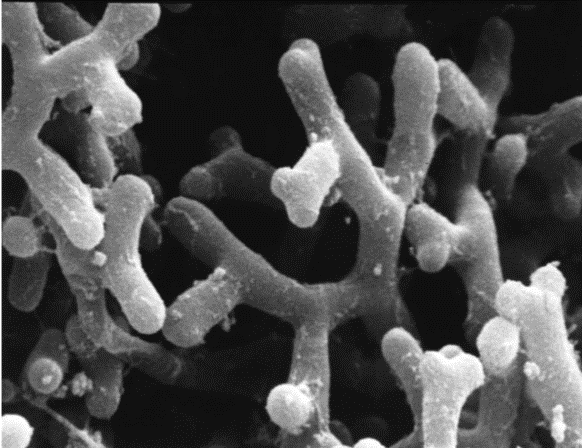
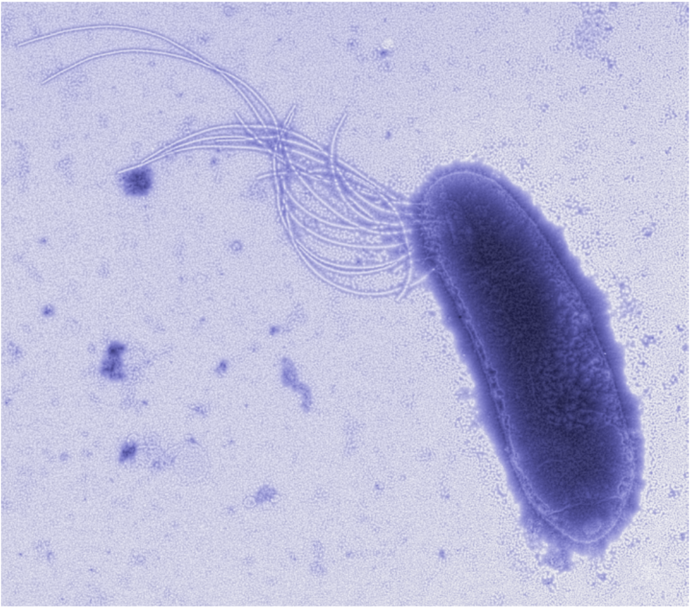
Roseburia species
- Bacteria in the Roseburia group are one of the most abundant types of microbes in the human large intestine
- Are obligate anaerobes, which means that they die if they are exposed to oxygen
- Grow on lots of different carbohydrates
- Produce the short chain fatty acid butyrate which provides energy to your gut cells, helping to keep them healthy
- Have flagella to help them swim towards their food
Faecalibacterium prausnitzii
- First described by scientists at the Rowett Institute (University of Aberdeen) in Scotland in 2002
- One of the most abundant types of microbes in the human large intestine
- Contributes to health by reducing gut inflammation
- Grows on pectin (found in apples and other fruits)
- Also produces the short chain fatty acid butyrate
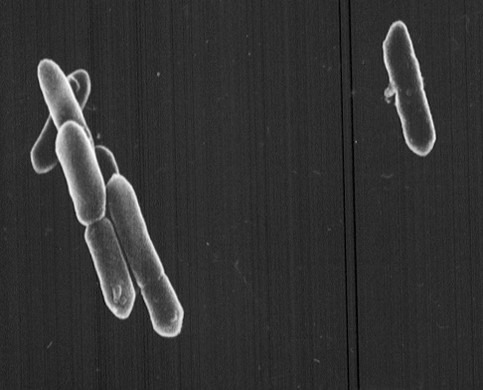
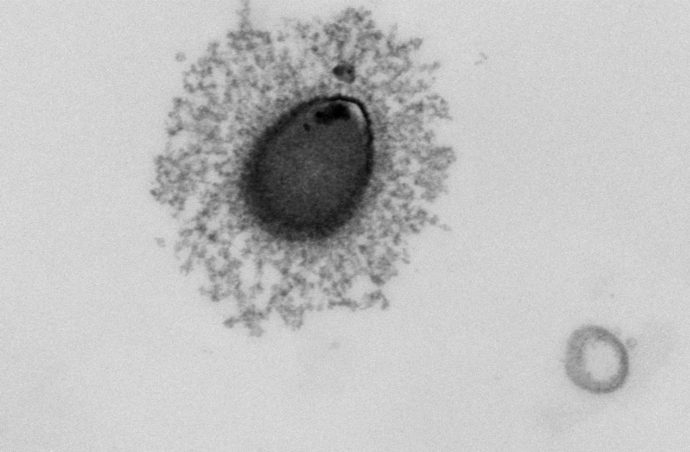
Ruminococcus bromii
- One of the most abundant types of microbes in the human large intestine
- Grows really well on starch, with exceptional ability to break it down, including raw starch particles
- Turns the starch into alcohol and acetic acid (vinegar!)
Lactobacillus species
- A lactic acid bacterium, converting sugars to lactic acid
- Mostly found in the small intestine where helps digest milk (breaking down lactose into glucose and galactose units)
- Stimulates the immune system and can also help to prevent urine infections
- Often used as a probiotic bacterium and provides various health benefits
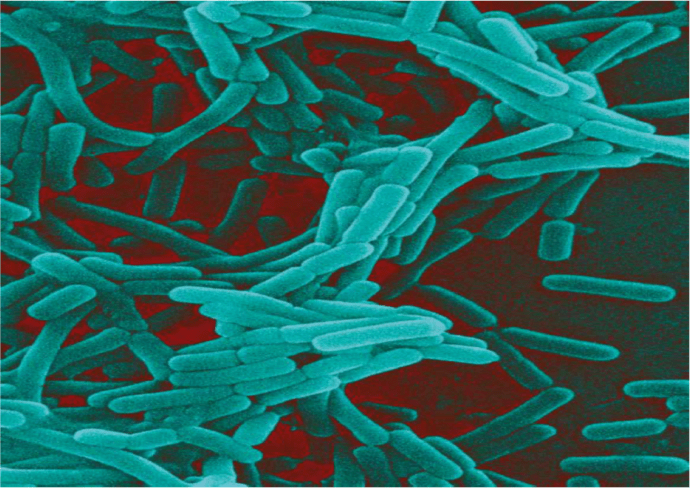
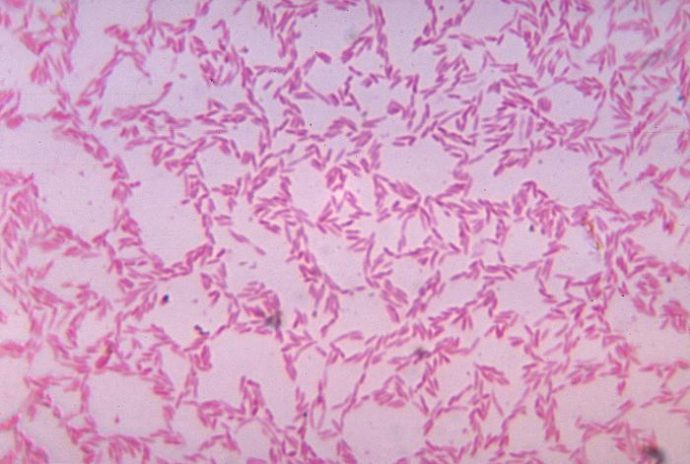
Bacteroides species
- Another of the most abundant types of microbes in the human large intestine
- Grows well on many polysaccharides, and possesses an array of complicated machinery to help break them down
- Converts polysaccharides like starch into short chain fatty acids like propionate
- Bacteroides that escape from the intestine into the human body can cause nasty infections
Bifidobacteria species
- An important intestinal bacterial group in adults
- Grows on sugars that are released by other bacteria, and also many that are found in plants and prebiotics
- Generally more than 8% of genes are used to degrade carbohydrates
- Often used as a probiotic because not known to cause any diseases
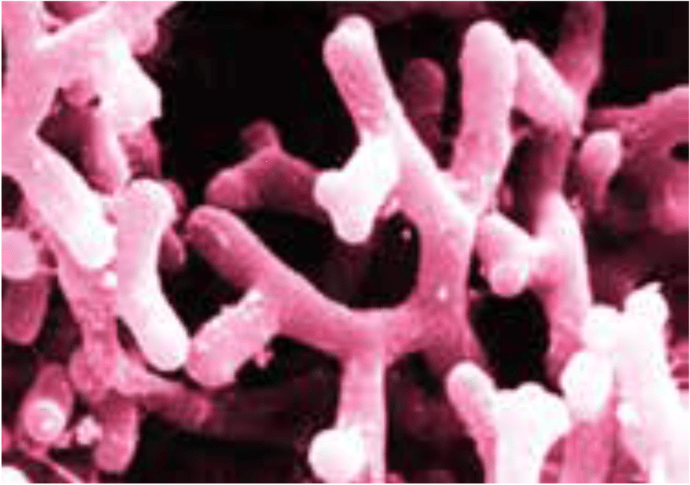
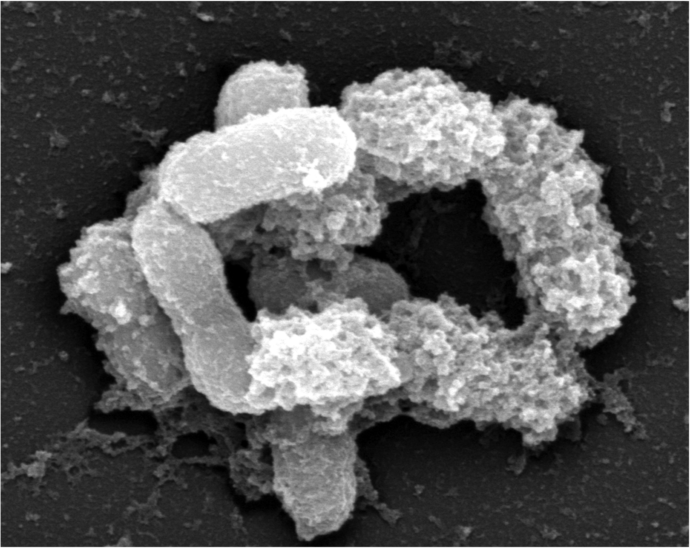
Akkermansia muciniphila
- Found near the mucin layer in the gut
- Degrades the mucin and uses it for energy
- Sends signals to host epithelial cells to produce more mucin
- This can help to improve the mucin barrier and reduce inflammation
Bad bacteria
Not all microbes that are found in our guts are good for us. Some microbes can cause foodborne illness and you can read more about these here. Helicobacter pylori and Clostridium difficile can also cause disease.
Helicobacter pylori
- Lives in the stomach, found burrowed into the mucus lining
- Around 50% of people around the world have Helicobacter in their stomach
- More commonly found in people from developing countries
- Can cause inflammation and stomach ulcers, and in some cases this can lead to stomach cancer
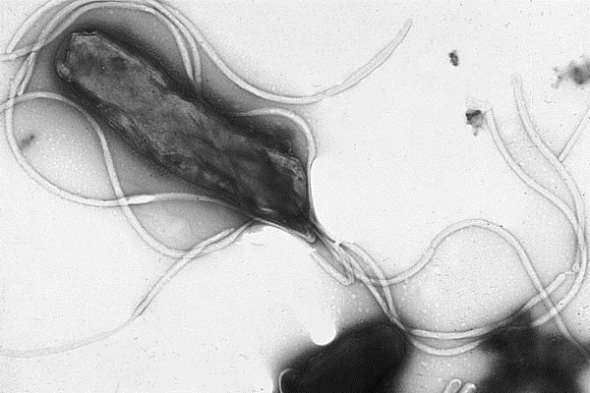
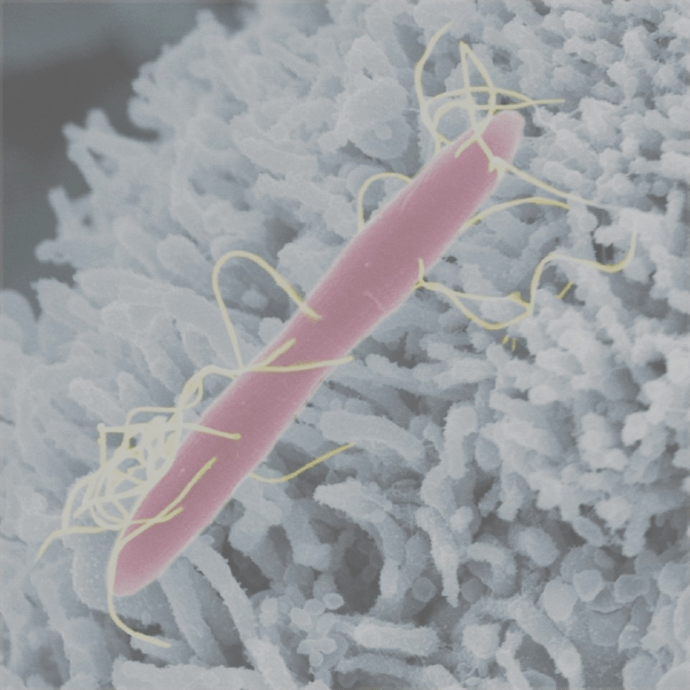
Clostridium difficile
- Causes diarrhoea, usually after people have taken antibiotics
- Particularly dangerous for elderly people in hospital
- Can be killed off by the “good” bacteria in the gut
- Transplanting bacteria from poo from healthy people into the guts of people who are sick with C. difficile can cure them!
Dr Tim King (Rowett Institute) provided many of these electron micrograph images.
Read also
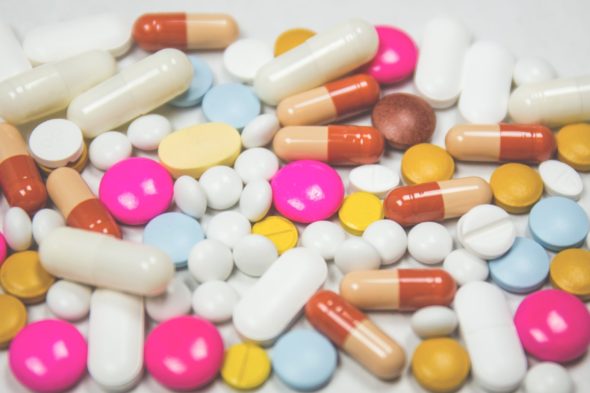
Gut health
Antibiotics and your gut
Antibiotics are used to treat bacterial infections but they can also ‘kill’ our gut microbiota and this can impact on our health.

Foodborne pathogens
Foodborne pathogens
Foodborne illness can be caused by a wide variety of different microbes. Some microbes produce toxins which can also cause illness.